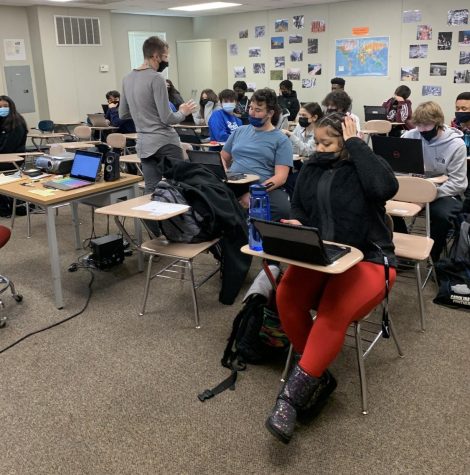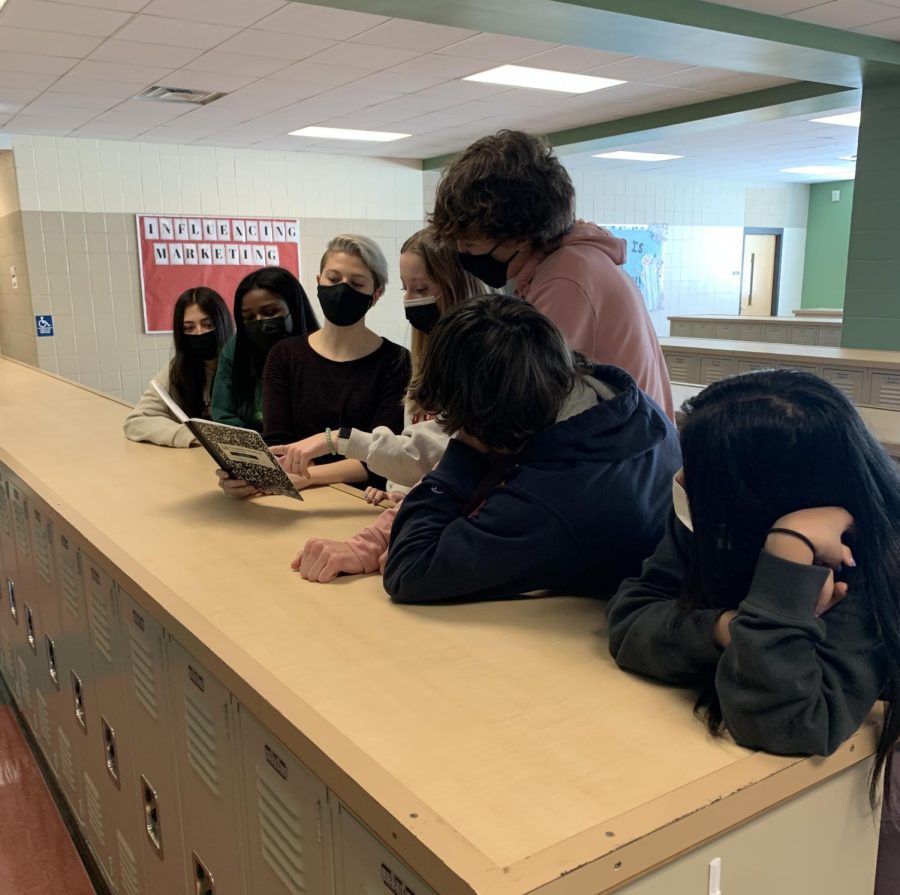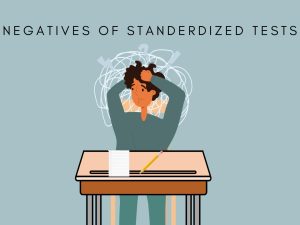New teachers on balancing success and support
Science teacher Chelsea George works with students in the locker bays.
February 22, 2022
Alongside the challenges of reentering schools in-person full time during the pandemic, there is an increasingly expanding problem: teacher shortages and empty classrooms. Though Wakefield has not been excluded from these vacancies, the influx of new, beginning teachers has created a sense of connection and spirit among both staff and students.
Laura Stiles is the science department chair and mentor coordinator for beginning teachers. She shared her thoughts about how students are reacting to the wave of new teachers.
“The biggest challenge has been the classes where we’ve had to wait for teachers to come in,” Stiles said. “[Students] are responding really well to the new energy and ideas that new teachers are bringing in.”
Beginning social studies teacher Joshua Cyr won the Wakefield nomination for the Diane Kent-Parker first-year teacher award. They teach freshman and senior history classes and explained the significance of prioritizing student success, even as scarcities affect planning time and workload.
“Regardless if you’re a student or a teacher, anyone involved in schooling right now is having a difficult time,” Cyr said. “We’re in a limbo period trying to make sure you’re not affected, especially [in] these classes because they’re all freshmen and seniors, and those are key years.”
Though teachers are doing their best to cover vacant classrooms, many believe there is potential for a long-term teacher shortage as positions remain unfilled.
Chelsea George, a science teacher in her second year of teaching, shared her worries about finding new teachers in the future.
“I have been really concerned about where this is all going because there aren’t a lot of teachers coming up behind me,” George said. “I went to UNCG and I was the only person in the education school that was going to teach science. There is a potentially big problem on our hands.”
As precariousness surrounding open positions increases, so do discussions about mental health and work-life balance. According to a RAND Corporation survey, teachers during the 2020-2021 school year were more likely to disclose symptoms of stress and depression than adults in other fields.
George offered some advice for teachers about managing stress.
“Have as much fun outside of work as possible. Do your best to focus on the good things,” George said. “Enjoy time with your students, don’t take things personally, support them as much as you can and take care of yourself.”
One way Wakefield’s new teachers are taking care of themselves is by building community through monthly socials, where they participate in group activities like ice skating and even ax throwing.
“I have to give a specific shoutout to Ms. George,” Cyr said. “She has done such an amazing job connecting all the younger teachers. It started with an email and now we’re all hanging out and building bonds.”
George also discussed the benefits of this supportive group.
“It’s really difficult to explain what this job is like to people who aren’t in it, so it’s helpful to have a community where everyone knows what you’re going through and has your back,” George said.
Along with developing relationships among fellow teachers, both Cyr and George emphasized the value of openness, respect and building safe spaces within their classrooms.
“Allowing and encouraging people to be themselves is fundamental to what makes people feel safe and included,” Cyr said. “You don’t have to go out of your way to respect somebody. You just respect people and that’s what I try to do.”

George agrees, elaborating that students deserve the same respect she expects from them.
“I’m big on mutual respect. I hope [students] know that in my class they are safe and honored and that learning is there for them if they choose it,” George said.
Senior Jaden Argueta had a class with Geroge and contributed a student perspective on essential qualities for academic success.
“Open-mindedness, patience and understanding are important,” Argueta said. “I’m more successful with teachers I connect with because I’m more engaged and feel more comfortable asking for help.”
Regardless of the combined challenges of schooling during the pandemic, teacher shortages and finding balance in personal life, educators are trying to remain optimistic, especially as schools remain fully in-person.
“For new teachers in the pandemic, there was a lot of ‘trust us it’s gonna get better, this is not what teaching is all about’,” Stiles said. “This year it’s a lot better. We’re reminding them that students need the extra support, and building relationships is really important.”









